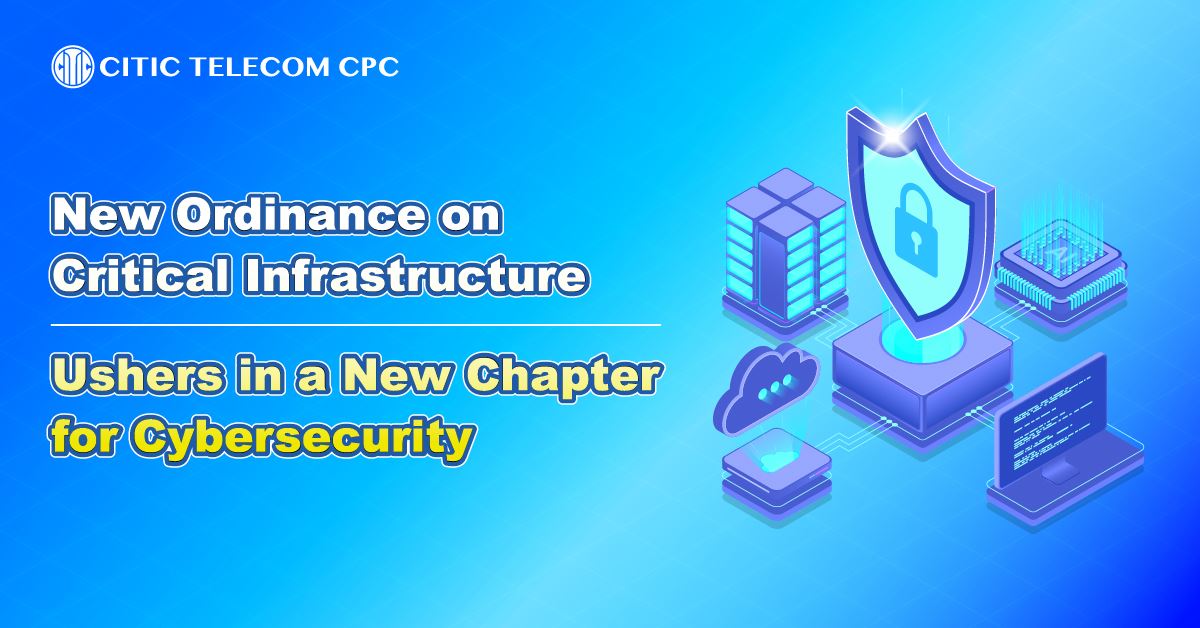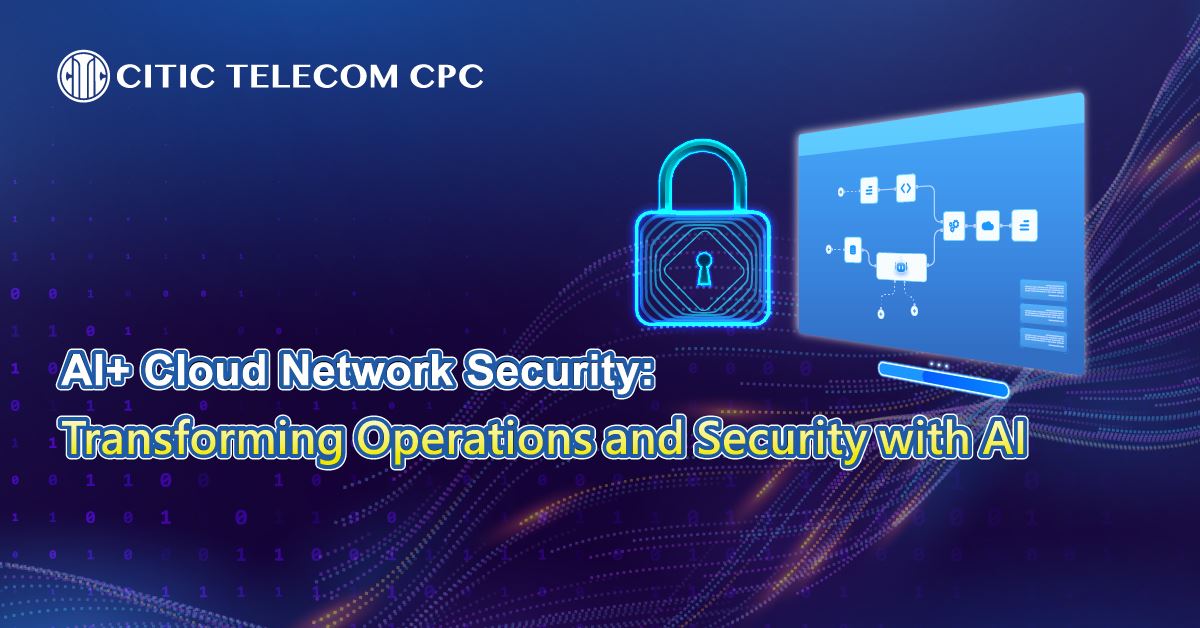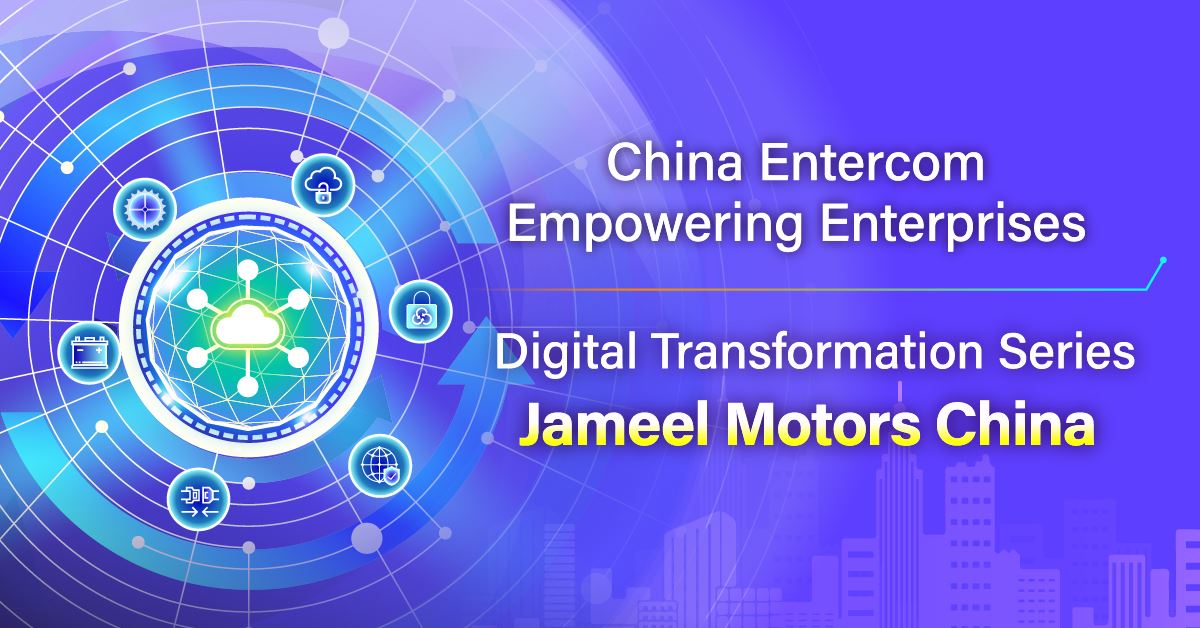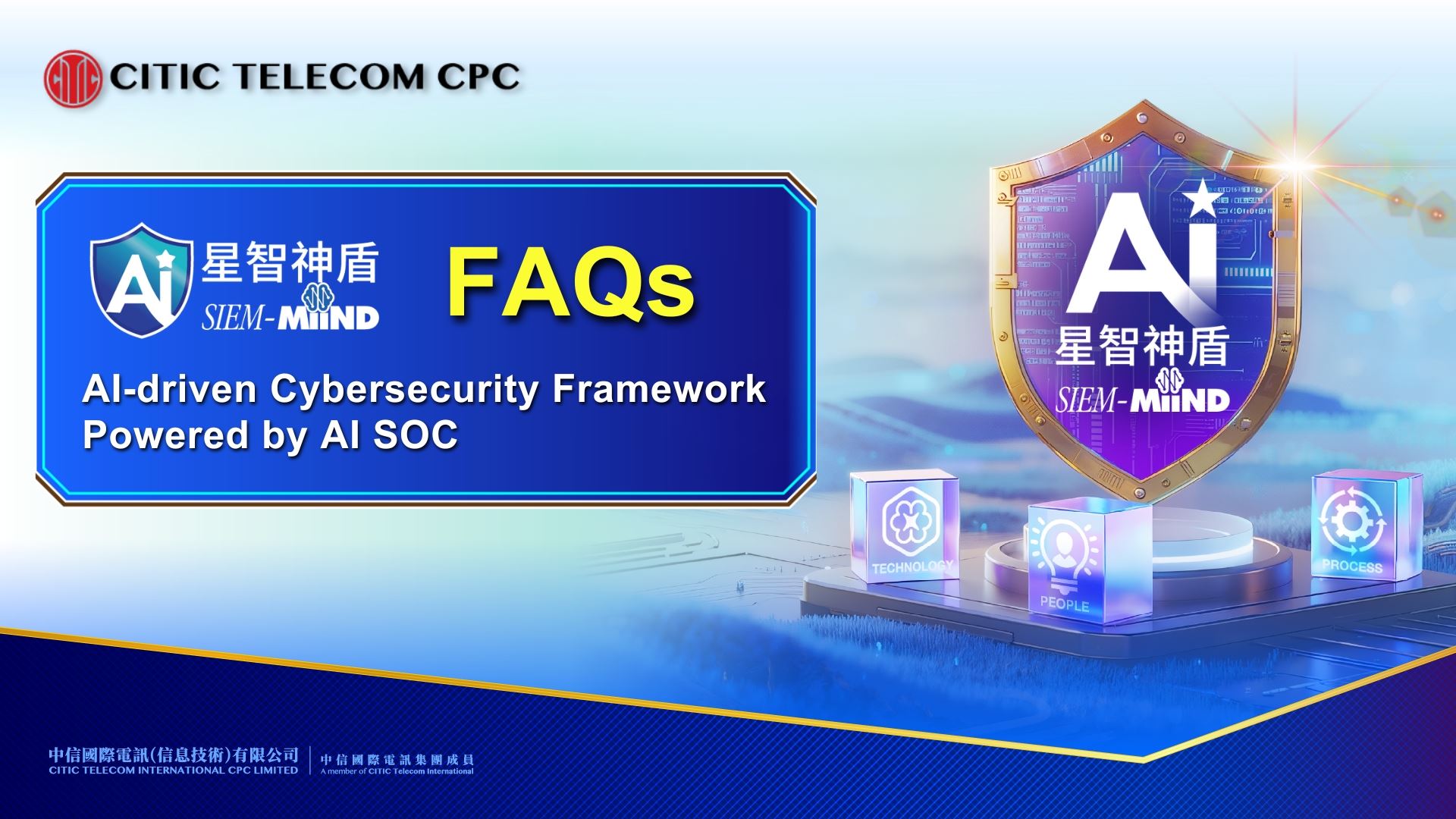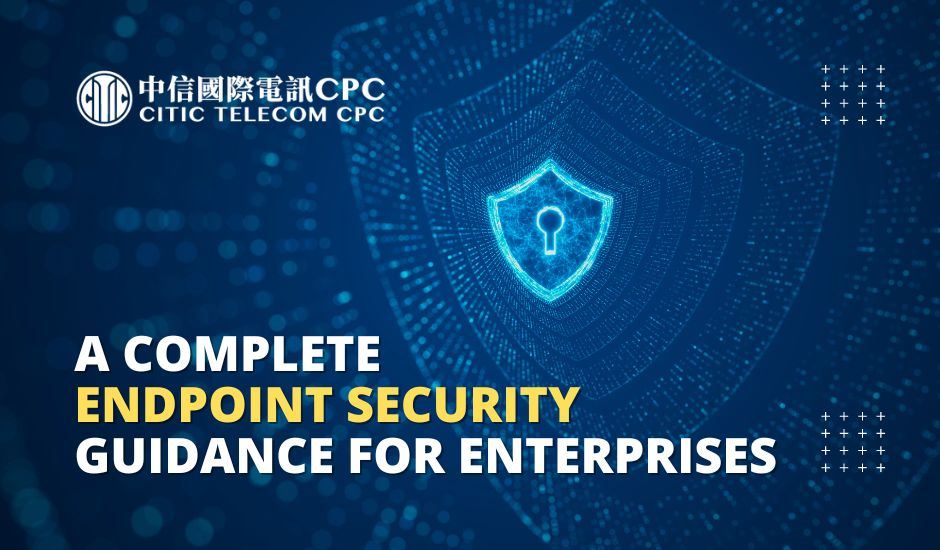
As businesses continue to embrace a blended and flexible working model, the number of mobile devices such as smartphones and tablets connecting to enterprise assets surges tremendously. According to the recent research, the estimated endpoint devices managed by each enterprise is around 135,000 on average, meaning endpoint security is more important than ever before.
Definition of Endpoint
Endpoint refers to any type of mobile devices connected to a specific network, site or service, including but not limited to:
-
Laptops
-
Desktops
-
Servers
-
Tablets
-
Internet of Things (IoT) devices
-
Appliances
-
Smartphones
-
POS devices
What is Endpoint Security and How it Works?
With modern enterprises marching towards smarter operations, the number of endpoints will only grow over time. Without appropriate endpoint protection measures in place, endpoints will be left vulnerable to cyber attacks.
Endpoint security can be divided into two key components, which are (1) Threat Detection and (2) Response, respectively. At the initial stage, the endpoint security solution will establish a security baseline profile for each operational endpoint in the enterprise network or server. Once in place, the endpoint protection system will perform regular monitoring through a mix of machine learning, artificial intelligence, behavioral analytics technologies to detect anomalies and violations that might be indicative of a security breach.
In the event of a cyber incident, an endpoint security solution will trigger a predefined response with accurate and timely alerts. Depending on the attack type and scale, exceptional endpoint security solutions such as TrustCSI™ Endpoint Detection & Response Service will also involve humans teaming with machines to provide round-the-clock managed security services and spot advanced malicious actions that can otherwise go undetected sharply.
Why Endpoint Security Matters?
In today’s new era of business, endpoint security and protection can be considered as the backbone of any enterprise across the world for several crucial reasons:
(1) Endpoint security is key to protect businesses’ long-term prosperity
In economic terms, the average cost of cyber attacks is estimated at roughly £4,200, and the figure goes up to around £19,400 for medium-sized and large businesses in United Kingdom, as reported by the Cyber Security Breaches Survey 2022.
If a data breach occurs, businesses may also face fine or judicial inquiry into the practices of data storage and sensitive information management. For instance, under China’s Cybersecurity Law, the fine for such a violation reaches up to RMB 1 million.
(2) Endpoint security reduces unplanned downtime and enhances productivity
Regardless of the industry or business nature, unnecessary server downtime will inevitably lead to a significant loss of productivity. Unpatched devices and other kinds of endpoint vulnerabilities create loopholes for hackers to exploit and hold the entire network hostage, which can immensely disrupt a company’s routine operations.
But on the bright side, the majority of these cyber attacks are preventable. Endpoint detection and response solution is capable of remediating various attack types such as ransomware, phishing, malware and even the file-less attacks instantaneously.
(3) Endpoint security prevents security threats from insiders
It is discovered the number of insider threat incidents has surged between 2020 and 2022, and the trend is still steadily increasing. In general, insider threat refers to cyber risks that originate from within an organization, examples include compromised endpoints, service misconfigurations and delayed security incident response.
Entering a new normal, where remote work will likely prevail across the corporate world, endpoint security issues arise when people try to access enterprise private network from any location on any device. The implementation of top-grade endpoint detection and response solution is therefore an essential preventive measure as it helps businesses to gain full visibility on or off the network.
Endpoint Protection VS Traditional Antivirus Solutions
Antivirus solutions are the most basic components of enterprise security strategy, however, they might not be enough to combat attacks that grow more sophisticated by the day.
The differences between endpoint protection and traditional antivirus solutions are as below:
| Endpoint Protection Solution
| Traditional Antivirus Solution
|
Definition
| Protect
network and all their endpoints from cyber threats via a combination of
firewalls, data loss prevention and other tools
| Subset of
endpoint security that helps to detect and block malicious viruses and other
malware
|
Approach
| Machine
Learning Based Protection
| Signature-based
Protection
|
Scanning Frequency
| Real-time
| Daily/
Weekly
|
Malware Protection
| ✔️
| ✔️
|
Web Blocker
| ✔️
| ✔️
|
Mobile Device Protection
| ✔️
| ✔️
|
Centralized Security Management
| ✔️
| ❌
|
Data Encryption
| ✔️
| ❌
|
Data Access Hierarchy
| ✔️
| ❌
|
Benefits
| - Protect complete network
- Remotely control security operations
- Security solution for entire organization
| - Protect individual devices
- Detect and remove malicious files
- Security solution for each device
|
Core Components of Endpoint Security
(1) Device Protection
“Device” is one of the major focuses of endpoint security and protection solutions since it serves as the gateway to a company’s network. Device protection means all Internet-connected endpoints such as laptops, smartphones and IoT sensors are protected with an enhanced layer of security measures, helping end users to defend against malicious activities and online threats automatically in real-time.
(2) Application Control
Endpoint security solution has predefined policies and rules which configure certain applications will be blocked or terminated when it tries requesting access to the enterprise network. Apart from offering recommendations on whether or not to approve an application, application control also allows businesses to elevate application-specific privileges instead of user-specific privileges when required.
(3) Data Control
To enhance an enterprise’s data encryption standard, endpoint security solutions will store and backup important information on endpoints regularly to avoid data leaks and losses. Data control is a key pillar for safeguarding and protecting confidential data since it helps to improve overall data security by taking extra precaution to protect sensitive or vulnerable data.
(4) Browser Protection
Most browsers contain lots of private information, such as login credentials, cookies and trackers.
Endpoint security solutions will thus employ web filters to strengthen browser protection, which is conducive to preventing endpoints from visiting malicious sites and ensuring safe browsing, making it a more proactive approach to remain secured on the Internet.
Guide to Develop a Corporate Endpoint Security Strategy
Endpoint security strategy varies greatly between enterprises, still, there are some best practices that can be applied to all business environments.
(1) Secure all possible endpoints
Unprotected endpoints are vulnerabilities and often a favorable attack surface for hackers to easily penetrate the entire network. Enterprises must therefore adopt stringent security measures so as to protect their private network from unauthorized behaviors.
(2) Encrypt data at different network endpoints
Encryption is critical to the overall endpoint security strategy since it guarantees the confidentiality of each piece of data stored on computer systems or transmitted through a network. Endpoint encryption can be implemented in a variety of ways, including file and folder encryption, full disk encryption and removable media encryption. In addition, encryption keys are regularly stored and backed up, providing additional security for an organization’s encryption procedures.
(3) Enable automated patching process
Leaving devices and software unpatched makes them vulnerable to various cyber attacks, to properly reduce the associated risks and enhance security posture, installing patches automatically is by far the fastest way. Automated patching helps to fix vulnerabilities on existing endpoint security solutions, allowing enterprises to stay updated on the latest cyber security trends and threats.
(4) Monitor endpoint security performance continuously
Having the right endpoint detection and response solution is vital for achieving business continuity and protecting an organization’s mission-critical assets. However, each solution has its own set of features and associated business considerations. Enterprises should conduct evaluation and analysis with detailed research into endpoint security expert advices, the results of objective testing and user feedback on a regular basis.
TrustCSI™ EDR - First Line of Defense Against Endpoint Threats
Cyber attacks today have the capability to bring down a business’s entire operations and cost it millions of dollars and its reputation. With most enterprises working remotely, it is important for all endpoints across the organization remain protected and secure.
TrustCSI™ EDR Service detects and responds to cyber threats automatically, so that enterprises can take a proactive approach to cybersecurity, rather than remediate the problem after the attack has happened, saving enterprises millions of dollars and downtime.
For more information, click here and send us your inquiry.


